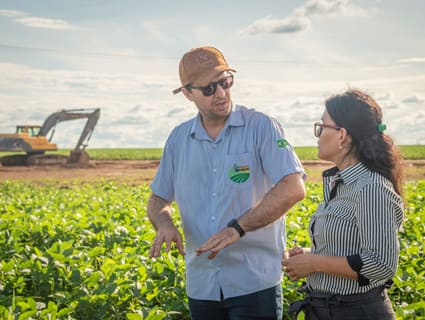‘Trees are our common heritage’: How Cargill empowers farmers in cocoa, soy and palm supply chains to protect and restore forests
Read Time: 5 minutes
March 20, 2023
When Ouatara Shaka sees someone destroying trees, it breaks his heart.
Nearly 35 years ago, Ouatara moved to Bossoha in Côte d’Ivoire in search of a better life for his family. Today, he is one of an estimated 600,000 cocoa farmers in Côte d’Ivoire, the world’s largest producer of cocoa.
Ouatara understands the pressures that might lead fellow cocoa farmers to convert forests into farmland — like meeting increased demand for cocoa or supporting their livelihoods as farmers. But deforestation creates longer-term problems for both forests and farmers — among them, losing trees that capture greenhouse gases and slow climate change.
Video Credits: ©Morgan Jouquand / Unforeseen Studio. Ouatara Shaka photography: Unforeseen Studio
To combat deforestation in cocoa supply chains, Cargill is partnering with PUR and farmers like Ouatara to promote agroforestry — an agricultural practice that includes planting new trees while also supplementing cocoa farmers’ incomes — in communities like Bossoha.
It is one of several ways Cargill is working to protect and restore forests across cocoa, soy and palm communities around the globe.
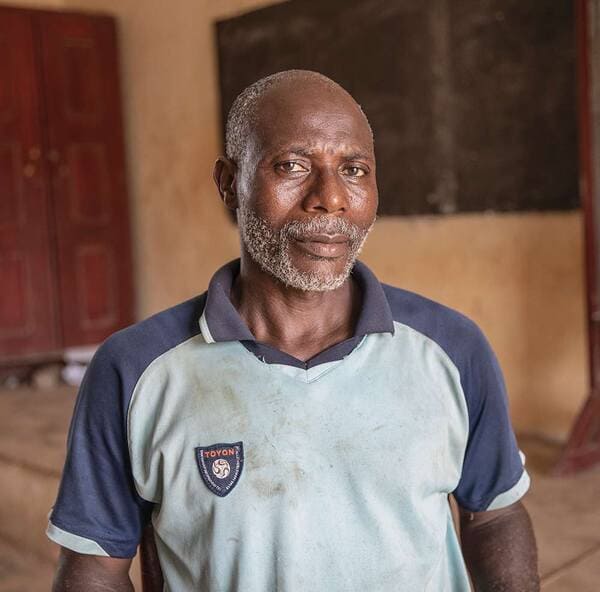 I am replanting trees for my children, to keep living from cocoa and provide a livelihood for my family. Trees are our common heritage, that’s why we must take care of them.”
I am replanting trees for my children, to keep living from cocoa and provide a livelihood for my family. Trees are our common heritage, that’s why we must take care of them.”
Since 2017, Cargill’s efforts have led to more than 1.2 million trees being planted and more than 21,000 farmers adopting agroforestry practices. It also includes working with women-led community nurseries for seedlings.
Video Credits: ©Morgan Jouquand / Unforeseen Studio. Ouatara Shaka photography: Unforeseen Studio
Learn more about how Cargill is making connections across the cocoa supply chain that bring a more sustainable future.
|
Cargill’s commitment to ending deforestation Cargill is committed to transforming our agricultural supply chains to be free of deforestation by 2030 — and we have accelerated milestones to be deforestation-free in soy in the South American biomes of Amazon, Cerrado and Chaco, as well as in palm globally, by 2025. Our Policy on Forests lays out our overarching approach to achieving this target globally across our priority supply chains. It is founded on our belief that farming and forests can and must coexist. |
|---|
Empowering soybean farmers to protect and restore forests in Brazil
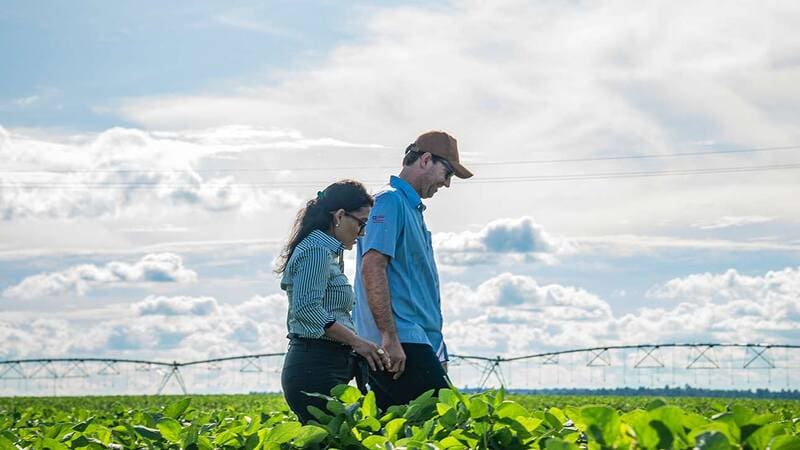 In Brazil, Cargill is partnering on new programs that provide farmers like Joel Carlos Hendges (right) with technical assistance and financial incentives to protect native vegetation.
In Brazil, Cargill is partnering on new programs that provide farmers like Joel Carlos Hendges (right) with technical assistance and financial incentives to protect native vegetation.
More than 40 years ago, Joel Carlos Hendges’ family moved north into Brazil’s Cerrado. Their challenge: build a farming operation from scratch.
Today, Joel is co-owner of the 8,300-hectare Agropecuária Seis Irmãos farm in Balsas. But he faces a new challenge: farming sustainably in the Cerrado biome, an important region for the world’s top soybean-producing country and home to rich native vegetation and biodiversity that is important to conserve.
“My hope for the future — as a rural producer and a representative of the family — is that the world’s population understands that the producer is not an enemy of them or of nature,” Joel says. “The rural producer cannot produce without ecological balance.”
In other words, forests and farming can coexist. That is the belief behind innovative Cargill programs that partner with farmers like Joel to protect and restore forests across Brazil’s most critical areas.
Through one of those programs, Joel works with Cargill partner organization Preserv Ambiental to help him with the complex requirements of the Forest Code, a law designed to protect Brazil’s natural habitat from deforestation and resulting climate change. Cargill provides technical assistance, including incentives for low-carbon agricultural systems and promoting soy production in areas that are already cleared.
We are proud to partner with Cargill in their efforts to support farmers in Brazil that, in return, will have a positive global impact.”
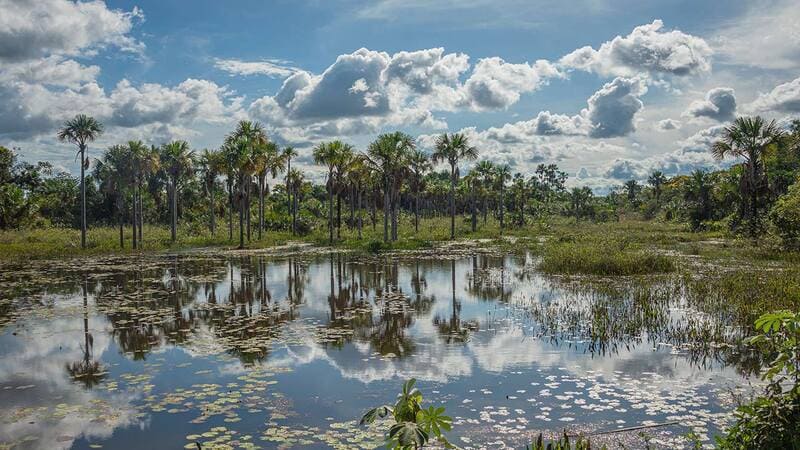 Cargill has committed to restore an estimated 100,000 hectares — an area similar in size to New York City — in Brazil over the next five years.
Cargill has committed to restore an estimated 100,000 hectares — an area similar in size to New York City — in Brazil over the next five years.
Cargill also has committed to restore an estimated 100,000 hectares — an area similar in size to New York City — in Brazil over the next five years. The work is already underway. One example: restoring altered areas in Matopiba in the Taquaruçu Grande River Basin, which supplies drinking water to a city of more than 300,000 people in central Brazil.
Learn more about how we are protecting and restoring forests in Brazil.
Farmers are the original stewards of the earth. When we partner with farmers, we can help to make adopting sustainable practices not only the right thing to do but financially viable. That is how we create real, positive impacts to the ecosystem that will feed people for generations to come.”
Connecting the dots between forests, soil and people in palm communities
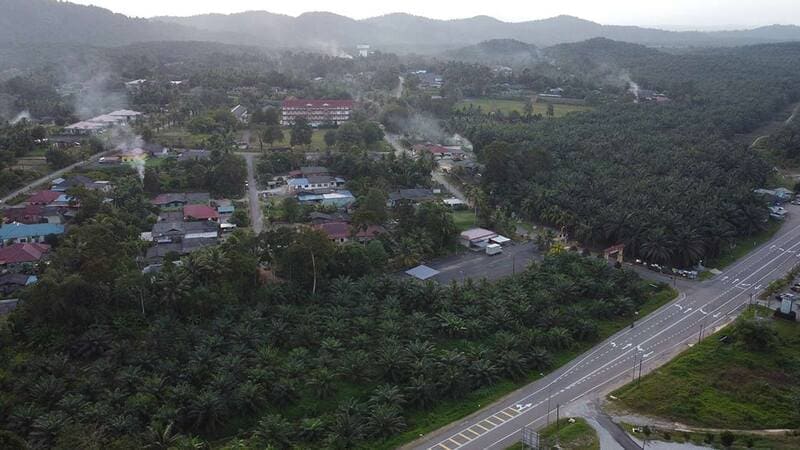 Cargill is partnering with Earthworm to protect and restore forests in the South Central Forest Spine region in Malaysia.
Cargill is partnering with Earthworm to protect and restore forests in the South Central Forest Spine region in Malaysia.
The South Central Forest Spine in Malaysia is a group of forests home to tigers, elephants and other species.
But the conversion of Malaysia’s forests into palm oil plantations in recent decades has disrupted the forest ecosystem. It not only breaks the chains between these forests, but also increases conflicts between humans and wildlife, especially elephants.
Challenges like deforestation in the palm oil supply chain are not unique to a single crop or sector. That is why Cargill and Earthworm — a nonprofit with a decade of experience working on supply chain transformation in Malaysia — are partnering to protect and restore forests in the South Central Forest Spine region.
And that’s not all. The partnership looks beyond a lone issue and tries to find solutions that tackle multiple sustainability challenges in the region — otherwise known as a landscape approach.
In Malaysia, that means helping connect the dots between sustainable agriculture, forest conversation and farmer livelihoods.
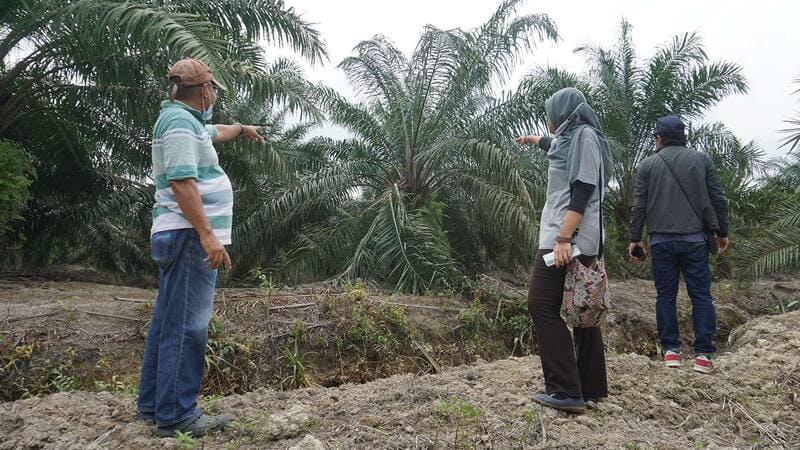 In Malaysia, Cargill takes a landscape approach to tackle multiple sustainability challenges, including deforestation.
In Malaysia, Cargill takes a landscape approach to tackle multiple sustainability challenges, including deforestation.
We are training the local farmers and plantation owners to improve farm management practices and exploring regenerative agriculture approaches to keep the soil fertile and productive.”
So far, the landscape project has seen a 26% decrease in deforestation, and 40% of palm oil mills have action plans against deforestation. It is one of nine Cargill landscape programs to address deforestation — including our work in Indonesia to protect and enhance forests, peatlands and natural ecosystems, among other areas.
To learn more about how Cargill’s creating connections for a more sustainable future, read our 2022 Environmental, Social and Governance Report.
More stories
More about Cargill
Can forests and farming co-exist? Yes, Cargill says in commitment to increase sustainable agriculture and protect forests in Brazil.
Through innovative programs, Cargill supports Brazilian farmers like Joel in protecting native vegetation — today and for generations to come.

Soil, sails and solar: Learn 4 ways Cargill is fighting climate change
From healthy soil to sustainable shipping, we’re working to combat one of today’s most pressing challenges.

